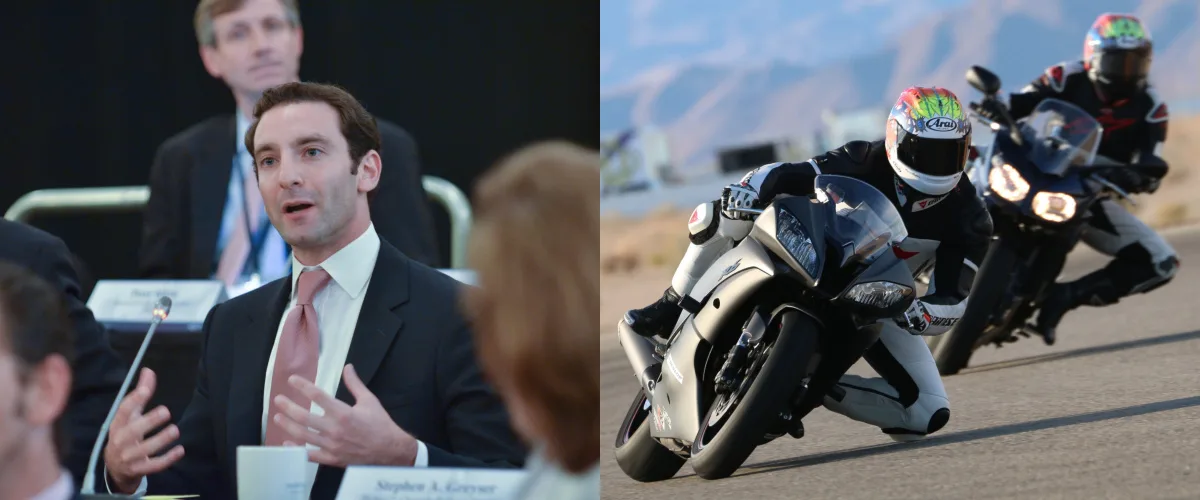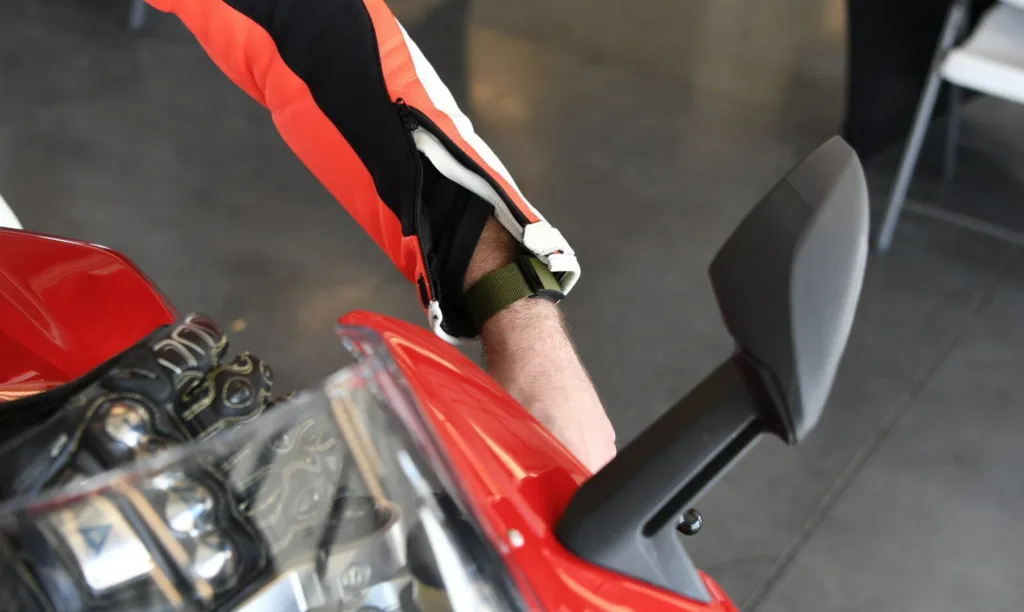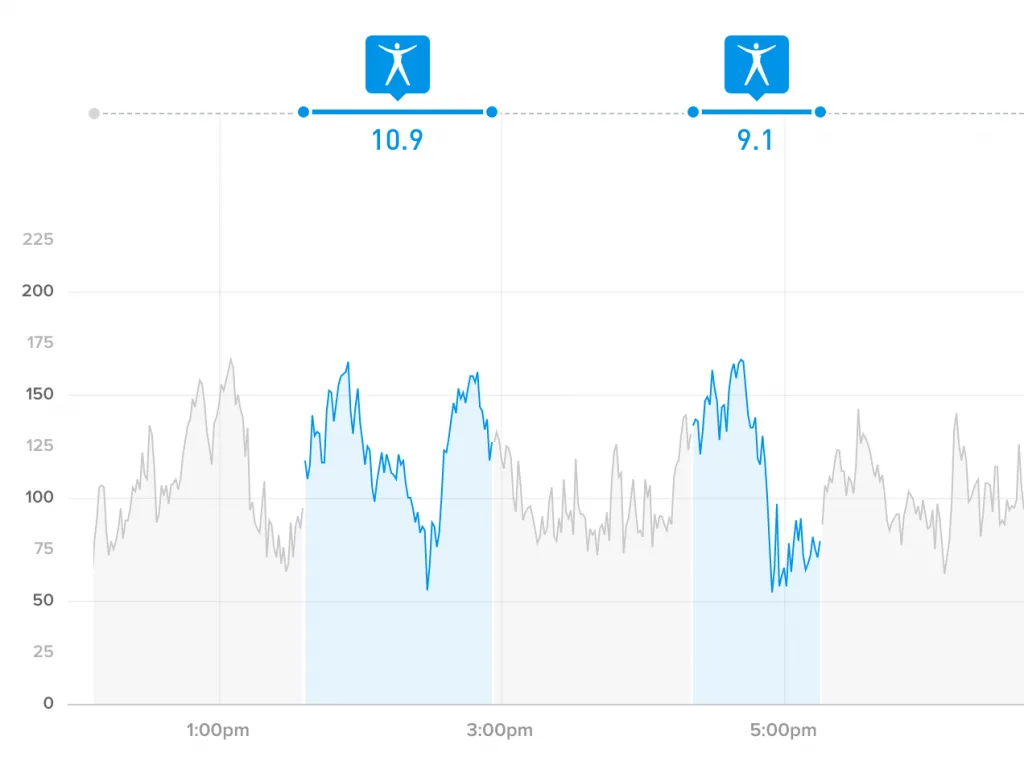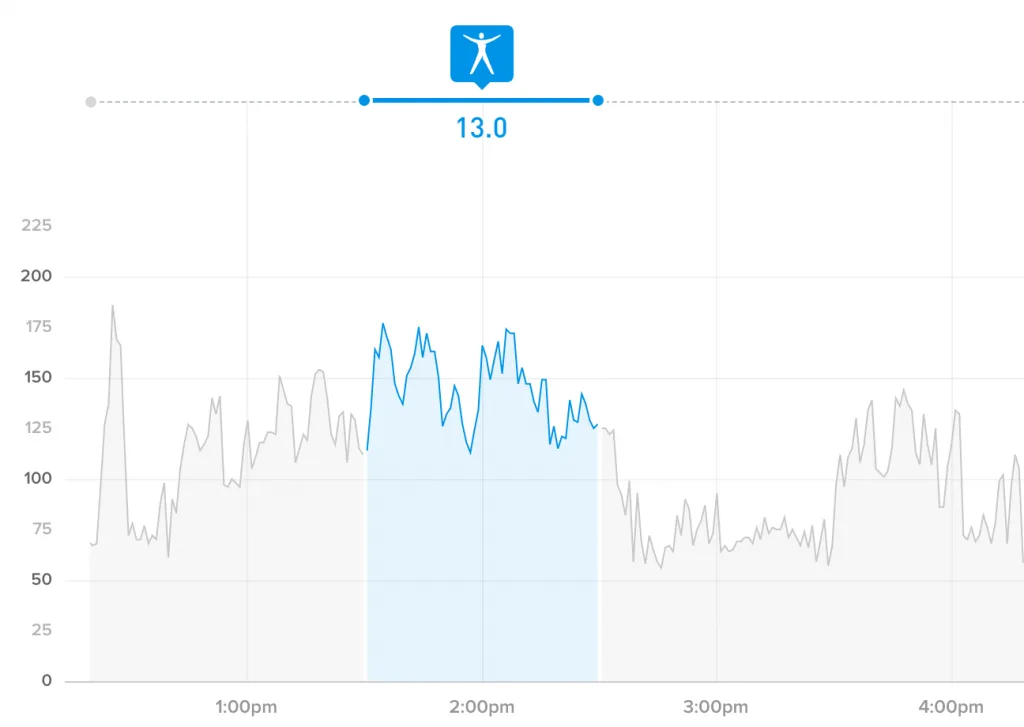Topics
- Article
The Strain of Public Speaking vs. Racing a Motorcycle

Zack Cooper is an assistant professor of health policy and economics at Yale University. When he’s not crunching the numbers behind escalating healthcare costs, he can often be found flying around a track at 165 miles per hour.
“I somehow got mixed up in the crazy world of motorcycle racing,” Zack told WHOOP. “It was like skiing and car driving put together, and required a whole lot of fitness.”
A competitive skier growing up, Zack attended Vermont’s Stratton Mountain High School, “a school for winter sports athletes, as weird as that sounds,” he said. Zack went on to ski Division 1 in college before transferring to the University of Chicago to “get his geek on for the next 15 years.” He studied at the London School of Economics for eight years, and has been a faculty member at Yale for the past five.
“I was missing competing, missing that feeling I had pushing and going fast,” Zack explained. “So when I finished my PHD and finally had enough money to do more than eat ramen noodles, I jumped on a motorcycle and fell in love with it. It’s the only thing I do that just sort of lets me escape the day-to-day. I think a lot of folks who played sports on a high level when they were young stay pretty into it, that mentality never goes away.”
This can be particularly true for a former college athlete who’s career has brought him back to campus. While motorcycle riding is a hobby for Zack, the fire to compete still fuels his professional life.
“I really care about being at the super pointy end of my profession,” he said. “I’ve been very fortunate to have a job at one of the best universities and to do research that I think is making the world a better place. That’s what I care most about. Exercise and nutrition are one means to help, but when I discovered WHOOP I realized it was another tool that could really be useful.”

Zack learned about WHOOP from some of his fellow riders on the Rickdiculous Racing team, which competes in the MotoAmerica professional race series:
“They were showing me the band with their Sleep and Recovery stats, and how much Strain they have while on the bike. Here I am just cave-manning it–trying to figure out how to be in shape before a really big lecture or if I have to speak at the White House. What do I want to do to maximize performance? I kind of know, but in every other part of my life I rely on data, and here’s the single most important area of my life and I’m just flying blind.”
Since making the decision to monitor his physiological data with WHOOP, Zack has benefitted greatly from a heightened awareness of sleep. “The key take away for me is realizing I wasn’t getting eight hours of sleep when I was in bed for eight hours,” he said. “That’s been the biggest change for me, that and having a barometer to stop overtraining when I work out. Like a lot of Type-A guys, I enjoy exercise and would always try to do something hard everyday. Before gaining a better understanding of my Strain, I would often just crash, particularly as I start getting older. Now, when I see bad Recoveries, that warning light on your dashboard is really useful.”
Zack often logs his motorcycle rides as activities on the WHOOP app, with Strains that are regularly on par with typical workouts of the same duration:

Last month, Zack discovered another activity than can cause immense Strain:
Speeches as cardio? Heart rate data via @whoop from day I presented at NBER Summer Institute. Elevated the whole time from 1:30 -2:30 pic.twitter.com/EJBAy3wDWN
— Zack Cooper (@zackcooperYale) August 1, 2017
“I’m up for tenure this year, a lifetime appointment, the gold star in my profession. It was a speech at the National Bureau of Economics Research, where all the best economists in the world come together. A hotel banquet hall was filled with 150 of my peers and senior colleagues, also the people who were going to have to write letters in support of my tenure packet. I was presenting a really big paper that’d been featured on the front page of the New York Times a few days earlier and hyped from here to infinity. Just a few minutes beforehand, one very famous economist walked up to me and said ‘I came to hear you give this lecture!’ ‘Oh great,’ I though, ‘that really calms the nerves.’”
Zack described the moment that could potentially make his career as “an incredibly aggressive environment where folks ask a lot of questions and push very, very hard.” There’s no hiding,” he said. “It’s just you standing up in front of a big group and showing what you’ve done in the face of very intense and real scrutiny. You’re up there feeling like you’re about to get exposed, wondering how long you can fend them off.”
He likened the experience to the ski races he used to compete in back in high school and college. “In skiing, you just race to the finish line and there’s nothing to blame on the judges,” Zack said. “You’re either fast or your slow. There’s a very similar element when you give a big lecture, it’s either going to go well or it’s not. You get the same sort of sweaty palms and nerves beforehand. When I was up there I felt the same adrenaline I’d feel before a big race. My max heart rate is 181 beats per minute, and I was right about there.”
The hour-long speech registered a 13.0 Strain for Zack when he logged it as an activity:

He also noted how the varying portions of his speech caused his heart rate to rise and fall:
“The big part was getting through the intro when I was really nervous. You can see the valley 10 minutes in when I presented the data, that part was pretty straightforward. Then it ramped back up when I discussed the results and implications of the study. For the last 20 minutes, I got more comfortable when I knew it was going well.”
The speech took so much out of him that Zack was only 65% Recovered the following day, despite a 100% Sleep performance that night:

“The Strain from my speech was higher than an intense CrossFit session, higher than if I jumped on a road bike and did a hard 30-mile ride,” Zack noted. “It’s something you don’t even realize, that’s the crazy part. It makes you wonder what else in your day-to-day are you not seeing the impact of?”
The old Zack likely would have gone out and tried to crush a workout under the assumption that he hadn’t done anything active the day before. With a newfound comprehension of Strain and Recovery, he now has the data to make smart decisions that better support his performance lifestyle.
RELATED:
The Strain You May Be Overlooking
Using Day Strain to Adjust Workouts: A Mail Carrier’s Story
Have a WHOOP story you’d like to share? Email TheLocker@whoop.com. And make sure to check out @whoop on Instagram, Twitter and Facebook.
Learn more about how WHOOP can help your team be prepared for high-anxiety situations.